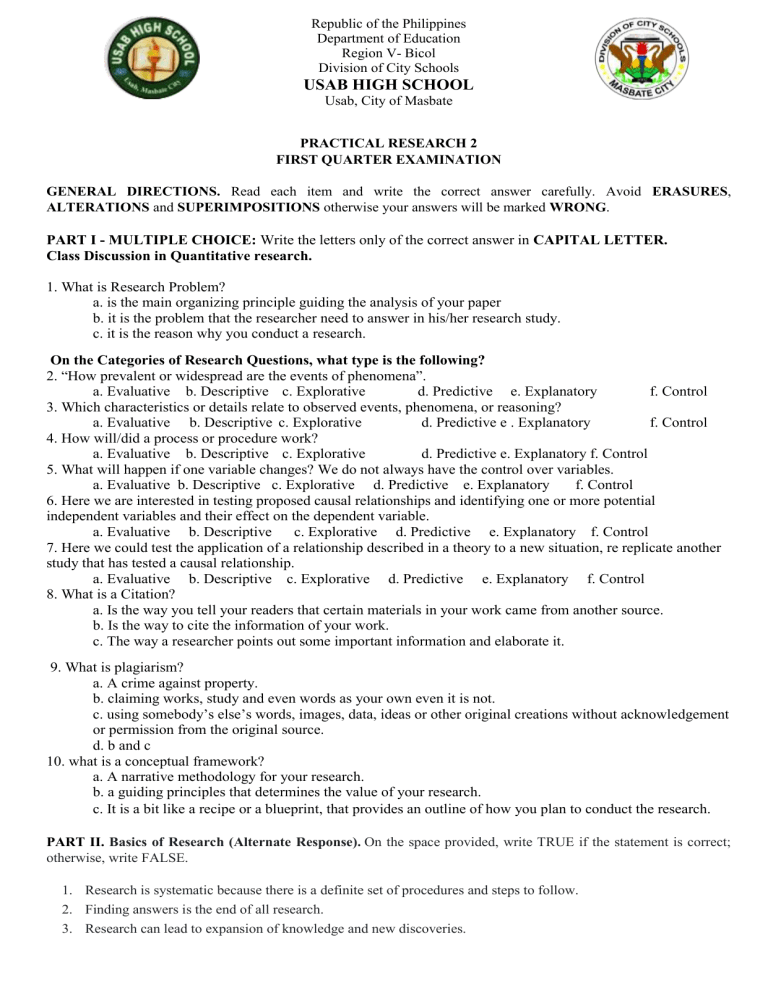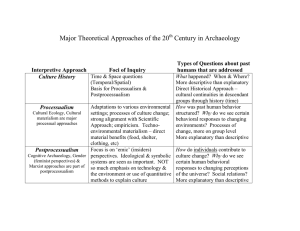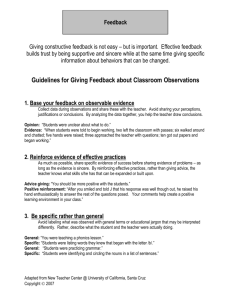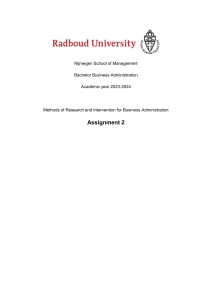
Republic of the Philippines Department of Education Region V- Bicol Division of City Schools USAB HIGH SCHOOL Usab, City of Masbate PRACTICAL RESEARCH 2 FIRST QUARTER EXAMINATION GENERAL DIRECTIONS. Read each item and write the correct answer carefully. Avoid ERASURES, ALTERATIONS and SUPERIMPOSITIONS otherwise your answers will be marked WRONG. PART I - MULTIPLE CHOICE: Write the letters only of the correct answer in CAPITAL LETTER. Class Discussion in Quantitative research. 1. What is Research Problem? a. is the main organizing principle guiding the analysis of your paper b. it is the problem that the researcher need to answer in his/her research study. c. it is the reason why you conduct a research. On the Categories of Research Questions, what type is the following? 2. “How prevalent or widespread are the events of phenomena”. a. Evaluative b. Descriptive c. Explorative d. Predictive e. Explanatory f. Control 3. Which characteristics or details relate to observed events, phenomena, or reasoning? a. Evaluative b. Descriptive c. Explorative d. Predictive e . Explanatory f. Control 4. How will/did a process or procedure work? a. Evaluative b. Descriptive c. Explorative d. Predictive e. Explanatory f. Control 5. What will happen if one variable changes? We do not always have the control over variables. a. Evaluative b. Descriptive c. Explorative d. Predictive e. Explanatory f. Control 6. Here we are interested in testing proposed causal relationships and identifying one or more potential independent variables and their effect on the dependent variable. a. Evaluative b. Descriptive c. Explorative d. Predictive e. Explanatory f. Control 7. Here we could test the application of a relationship described in a theory to a new situation, re replicate another study that has tested a causal relationship. a. Evaluative b. Descriptive c. Explorative d. Predictive e. Explanatory f. Control 8. What is a Citation? a. Is the way you tell your readers that certain materials in your work came from another source. b. Is the way to cite the information of your work. c. The way a researcher points out some important information and elaborate it. 9. What is plagiarism? a. A crime against property. b. claiming works, study and even words as your own even it is not. c. using somebody’s else’s words, images, data, ideas or other original creations without acknowledgement or permission from the original source. d. b and c 10. what is a conceptual framework? a. A narrative methodology for your research. b. a guiding principles that determines the value of your research. c. It is a bit like a recipe or a blueprint, that provides an outline of how you plan to conduct the research. PART II. Basics of Research (Alternate Response). On the space provided, write TRUE if the statement is correct; otherwise, write FALSE. 1. Research is systematic because there is a definite set of procedures and steps to follow. 2. Finding answers is the end of all research. 3. Research can lead to expansion of knowledge and new discoveries. 4. 5. 6. 7. 8. 9. 10. Research develops critical thinking and analysis. Research helps us find ways to allocate scarce resources accordingly. Research proves, and does not disprove, a theory or speculation. Without a question or problem, a research may still push through. Research does not attempt to modify existing programs or systems. Research focuses on contributing new knowledge and not on synthesizing what exists. In research, a researcher may start with reporting findings before setting hypotheses. PART III. IDENTIFICATION. Supply the missing information from each statement below. Write the complete answer in CAPITAL LETTERS. 1. A variable being tested and measured in scientific experiment. The respondent or the one that got affected. 2. According to him, a research should be based on the societal problems that seeks to address the matters of the community. 3. In this kind of topic, the problem statement is still need to be narrowed down since it contains general ideas. 4. The type of research questions that is specific and descriptive thus, is already researchable. 5. It is the overview of the research study or the part that discusses about the purpose of the study. 6. A part in which the research is all about. 7. The topic that is already researchable and is already narrowed down. 8. A kind of research question that is general and exploratory and needs to be narrowed down. 9. A research title should be clear, concise and __________. 10. The special types of independent variables that are measured in a study because they potentially influence the dependent variable. PART IV. ENUMERATION. 1-5. The basis of writing the background of the study. 6-7. The two types of research topic 8-9. The two types of research questions. 10.State one of the source of social research. PART V. ESSAY. 1. Discuss the difference of dependent variable and independent variable. (5 points.) 2. What is a social research? Prepared by: Ma. Socorro M. Burabod- Garcia, LPT, MAT (CAR) Adviser Noted by: Leah M. Romblon School Head



